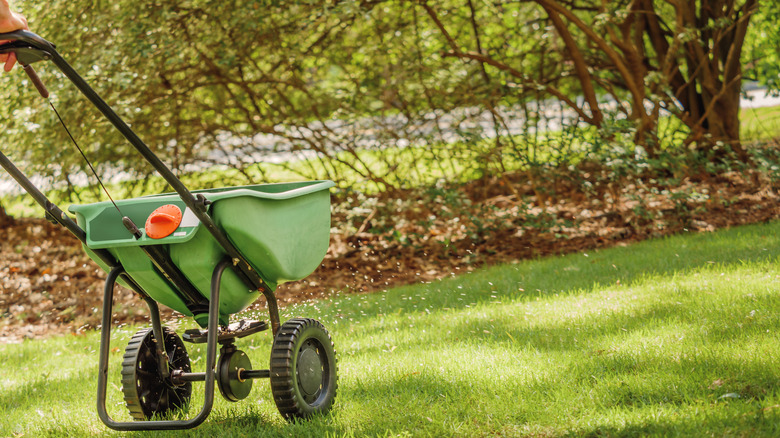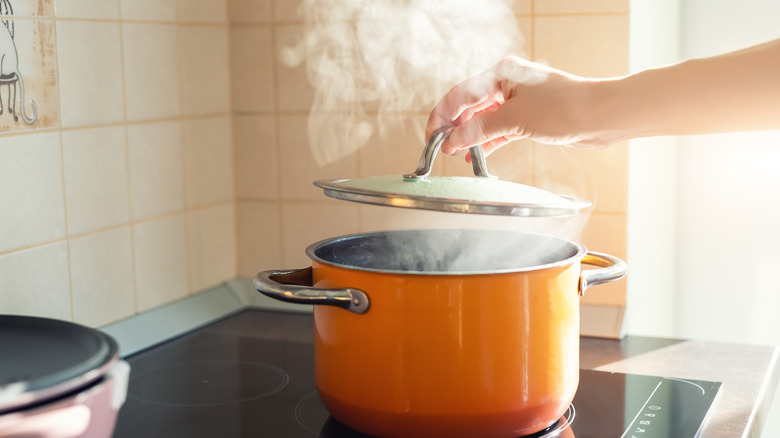A Nutritious Fertilizer For Your Lawn Is Already In Your Kitchen
Continuously buying fertilizer can add up to a significant expense when maintaining a garden. Different types of plants require specific amounts and types of fertilizers, and the average cost is between $15 to $40 a bag, so it can get expensive depending on how often you fertilize. If you've been looking for a more affordable option to help grow your plants, look no further than your kitchen — when boiling vegetables for your dinner, don't pour the water down the drain, instead set it aside to nourish your garden.
Using boiled vegetable water as fertilizer will help promote healthy growth for both your indoor and outdoor plants, your lawn, or your small herb garden. It's filled with various nutrients, like phosphorus, calcium, and nitrogen, that plants need to thrive. Plus, knowing that you can save hundreds of dollars a year with a natural fertilizer might help you increase your vegetable intake. You'll feel more energized, healthy, and stronger, as will your garden.
Benefits of using vegetable water as fertilizer
When you boil veggies, a lot of the micronutrients are left in the water, which is why it turns a different color. This process also happens with eggs, pasta, and potatoes, since they have high levels of the same nutrients. However, it's vital to note that when cooking these ingredients, you shouldn't add table salt to the water because it can harm your plants. Instead, season your ingredients when they're done cooking. In addition, it's essential to shop for vegetables at the right places. Avoid supermarket produce as the veggies are often sprayed with pesticides, which are toxic for plants. If you have a produce garden, use that, or buy organic produce that's locally grown.
Using vegetable water is straightforward. When your vegetables are done, set aside the water to let it completely cool down. Once it's cooled, transfer it to a spray bottle or watering can and pour it directly on your lawn and over your plant's soil. They'll soak up the water, allowing the nutrients to be absorbed by the roots. In addition, since vegetable water contains nutrients and vitamins, it helps the soil retain moisture — so you won't have to water as often.

